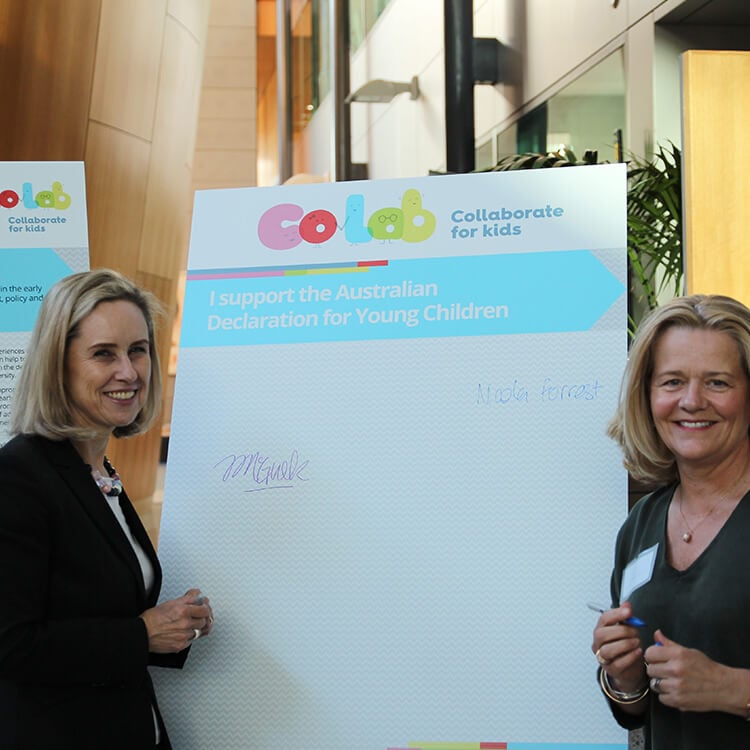Search

News & Events
Australia-first Declaration highlights early childhood action requiredMore than 70 leading early childhood experts have come together with CoLab to develop the first-ever Australian Declaration (of evidence) for Early Childhood.

News & Events
Telethon celebrates 50th anniversaryThis year sees WA’s much loved Channel 7 Perth Telethon reach a huge milestone, with 2017 marking the annual event’s 50th year of children's health fundraising.

News & Events
NHMRC Fellowships awarded to support child health researchSeven leading The Kids Research Institute Australia researchers have been awarded Fellowships from the National Health and Medical Research Council (NHMRC).

News & Events
The Kids statement on Marriage EqualityTelethon Kids Institute believes that everyone has the right to be treated with equal respect, to feel included and not be subjected to discrimination.

News & Events
Computer algorithm links facial masculinity to autismA new study led by The Kids Research Institute Australia has found a link between masculine facial features and autism.

News & Events
Rheumatic heart disease remains a major killer in Oceania regionA new study shows that people living in the Oceania region, including Australia, have the highest risk in the world of dying from rheumatic heart disease.

News & Events
Novel CoLab seeks to narrow the early childhood gapA new partnership between The Kids and the Minderoo Foundation is trying to change the ways Government and communities address disadvantage and neglect.

News & Events
Student wellbeing just as important as academic successA team of researchers passionate about the social and emotional wellbeing of children have been refining a survey questionnaire.

News & Events
New national tool to help improve FASD diagnosisExpected to shine a light on hidden harm from alcohol use during pregnancy, Australia’s first national FASD diagnostic tool has been developed by the Institute.

News & Events
Funding boost to melanoma researchA The Kids Research Institute Australia researcher will investigate new ways to harness the body’s own immune system to fight melanoma, thanks to Cancer Council WA funding.
